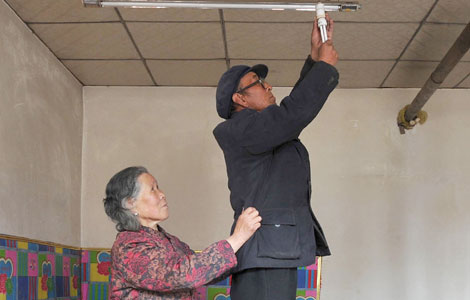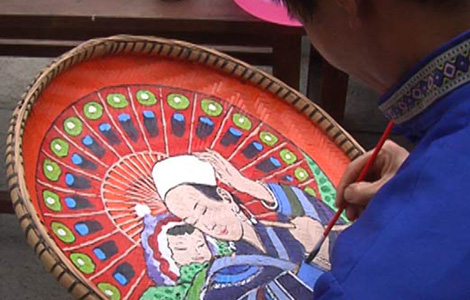A new life on the red planet
Updated: 2013-05-24 07:51
By Peng Yining (China Daily)
|
|||||||||||
An upsurge of interest
Mars One is opening an astronaut-training program for applicants that meet the basic criteria. They need to be at least 18 years of age and, in general, normal medical and physiological health standards will be used, according to the project's website. It is not necessary to have military training or experience of flying an aircraft. Not even a science degree is required.
"It's like telling people that your dream of being an astronaut might come true," Yang said. "Who doesn't have that dream?"
Considering China's enormous population of 1.3 billion, more than 10,000 applicants seems small beer, but public interest in outer space has been growing in recent years as China's space industry made huge leaps, said Peng Xiaobo, the senior launch vehicle scientist.
Since launching its first manned space flight in 2003, the country has sent a number of astronauts into outer space. "Chinese people are becoming more interested in space projects. The upsurge of interest stirred by Mars One gives people a chance to learn, but scientific education should continue during and after the project," said Peng.
As for the feasibility of Mars One, Peng believes that the existing technology is not mature enough to support the plan and interplanetary emigration is too complex a matter for a nongovernmental organization, at least at the present time.
In addition to the billions the project would have to spend on technology, Mars One estimates that the cost of putting the first four people on the planet will be around $6 billion. Funding is being sought through sponsorship, the projected revenues for broadcasting rights to the project, and the sale of related merchandise, which includes a $25 T-shirt bearing the Mars One logo.
However, as of May 12, the revenue earned though merchandising and donations was roughly $100,000 and only $294 of that came from China.
Although Mars One claims that more than 10,000 Chinese have applied, only about 25 people have published their applications on the official website.
"Most people might have just signed up through their e-mail address on the website, but only a few have paid the registration fee and completed the application process," said Li Dapeng, a 31-year-old applicant from North China's Hebei province, who works for the State forestry bureau.
Skepticism
There also has been widespread online skepticism about the project. On May 20, Chinese media reported online speculation that Mars One is a fraud and has already been suspended.
In an e-mail to China Daily on Tuesday, Bas Lansdorp, the project's co-founder, insisted that Mars One is doing very well and is still committed to landing humans on Mars in 2023. But, as with many highly ambitious and complex projects, there is always the risk of delay and Mars One is working hard to stay on schedule.
Lansdorp said the 78,000 applicants had taken the time and effort to fill in the application form and show their interest in going to Mars, and even if some decided they didn't want to pay the application fee, that doesn't necessarily mean they don't still want to go.
"If the project fails or is even shown to be a fraud, I wouldn't regret applying," said Li, who has started working out, practicing English and reading astronomy books since he applied to join the project.
"I like my situation right now - hopeful and confident. I know the odds aren't good, but at least I have tried to grab the chance to contribute to the space industry and humanity."
Related Stories
Voyage to Mars has its skeptics 2013-05-21 01:31
Renewed interest in mission to Mars 2013-05-06 07:39
China joins rush for Mars 2013-04-29 00:14
600-plus Chinese apply for Mars settlement 2013-04-26 21:28
Europe, Russia to launch Mars mission in search of life 2013-03-16 07:41
Scientists find right stuff for life on Mars 2013-03-13 11:12
Today's Top News
Japan urged to face history
Dialogue only solution to disputes
China to enhance AU partnership
Scrutiny urged to curb graft
Gutter oil to be used as auto fuel
Shanghai warns against telecom scams
Diaoyu Islands 'have never been Japan's territory'
China closes the gap with Switzerland, Europe
Hot Topics
Lunar probe , China growth forecasts, Emission rules get tougher, China seen through 'colored lens', International board,
Editor's Picks

|

|

|

|

|

|





